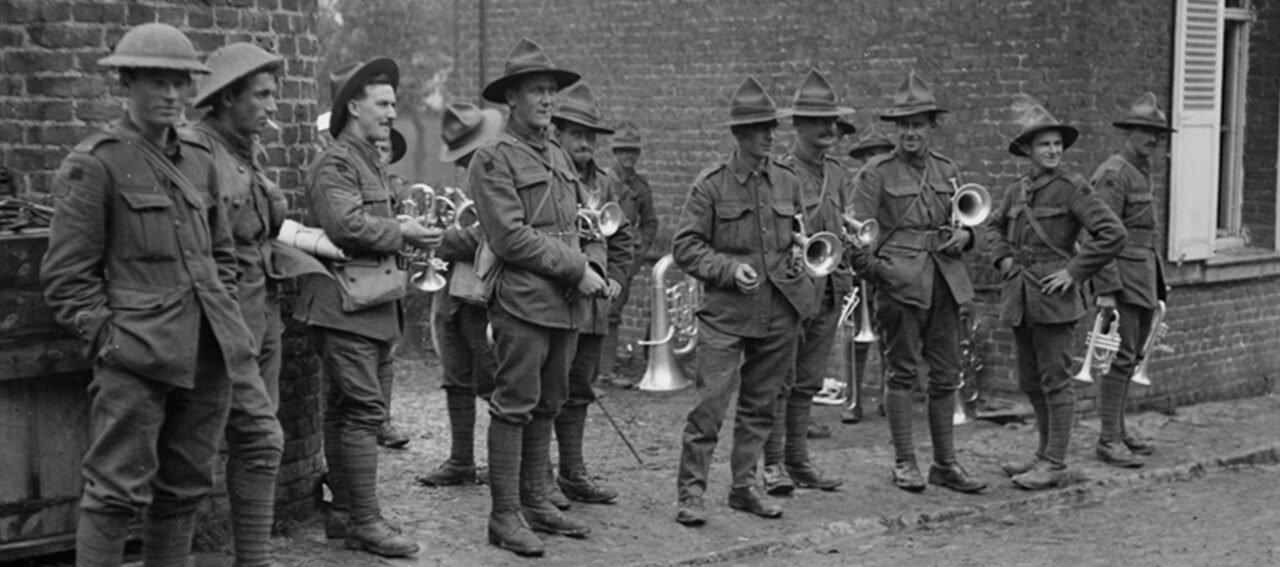Most of us will never have any idea what it is like to leave home and head off to war, or to farewell loved ones doing the same. In the early 20th century though, New Zealanders knew the feeling all too well, as ships full of excited soldiers sailed off to help the Empire win its distant war.
Our appreciation of their experience has most commonly come from faded photographs and history books. Now, thanks to Te Manawa’s ground-breaking exhibition Farewell Zealandia, a new angle has been added: the medium of song.
The historic Totaranui cottage – one of Manawatu’s oldest buildings – has become a special kind of concert hall. Its rooms are filled with song, each one re-recorded by Radio New Zealand; specially made brass listening devices provide a more intimate means of hearing each work.
On a still day you can hear the songs from across Main St as they play from speakers outside Totaranui. The whole area outside Te Manawa and The Globe becomes an open-air concert venue. The songs are also available to hear online at Radio New Zealand.
The songs follow the progress of the war and the changing ways we felt about it. A Trooper’s Farewell was written as the first soldiers left for battle in 1914. “Full of manly sentiment”, it echoes our early enthusiasm for giving “the Hun” a bloody nose.
Contrast that with Thoughts, a post-war reflection on the impact the war had on soldiers and their families, or E Pari Ra, Paraire Tomoana’s tangi for fallen Maori soldiers.
In between these extremes, Ernest Luks’ A Marching Song takes a humorous look at life in the training camp at Trentham. The song became tremendously popular, its fame reaching across the country.
It’s a glimpse of a different side of our wartime experience – and one you won’t get from Anzac Day.
[Image credit: New Zealand Rifle Brigade bandsmen in France, November 1918. Royal New Zealand Returned and Services’ Association: New Zealand official negatives, World War 1914-1918. Ref: 1/2-013779-G. Alexander Turnbull Library, Wellington, New Zealand.]




